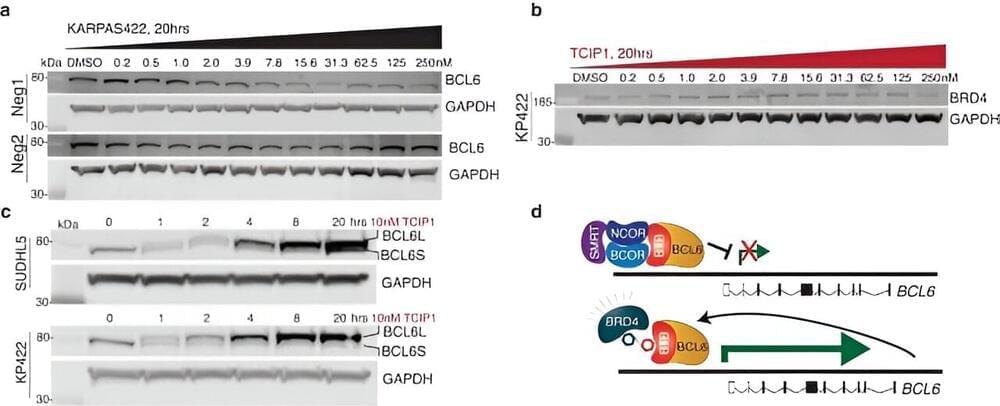Scientists at Stanford University have found a way to induce cell death in cancer cells with a method that could be effective in around 50% of cancers. In a paper, “Rewiring cancer drivers to activate apoptosis,” published in Nature, the team describes a new class of molecules called transcriptional/epigenetic CIPs (TCIPs) that can activate apoptosis with the help of cancer growth gene expressions within the cancer cells.
The researchers designed small molecules that bind specific transcriptional suppressors to transcription activators. The most potent molecule created, TCIP1, works by linking small molecules that bind BCL6 to those that bind transcriptional activators BRD4.
One of the components that makes cancer cells cancerous is that they ignore signals from surrounding healthy tissues to stop growing and to initiate apoptosis or cell death. The apoptosis pathways still exist but are actively blocked in certain types of cancer where the transcription factor B cell lymphoma 6 (BCL6) binds to the promoters of apoptosis genes and suppresses their expression through epigenetic mechanisms.










Comments are closed.